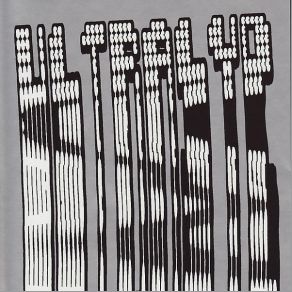Chromosome Gun
Download links and information about Chromosome Gun by Ultralyd. This album was released in 2005 and it belongs to Alternative genres. It contains 7 tracks with total duration of 34:19 minutes.

|
|
|---|---|
| Artist: | Ultralyd |
| Release date: | 2005 |
| Genre: | Alternative |
| Tracks: | 7 |
| Duration: | 34:19 |
| Buy it NOW at: | |
| Buy on iTunes $6.93 | |
Tracks
[Edit]| No. | Title | Length |
|---|---|---|
| 1. | Beautor | 5:55 |
| 2. | Pink Mood | 4:25 |
| 3. | Zooblast | 6:41 |
| 4. | Ejaculatorium | 4:04 |
| 5. | Brown Degree | 1:42 |
| 6. | Glottality | 4:20 |
| 7. | Last Resort | 7:12 |
Details
[Edit]It's always fun when a label can get to the point where side projects from other bands on said label get a home — then again, with Load Records the whole point almost seems to be that there's a crazy collective out there recombining at will. Ultralyd, a Norwegian-based quartet featuring Noxagt bassist Kjetil Brandsdal replicating his instrumental role, could almost be a stereotypically Load release in some eyes (and ears) — rampaging noise, feedback mania, rock taken to an nth degree. That said, Ultralyd succeed just as often as when they tone down, if not more so. An example can be heard halfway through opening cut "Beautor," when the arrangement strips down to drummer Morten Olsen and saxophonist Frode Gjerstad — Olsen's pace and fills are swift but not a blur, while Gjerstad's soloing similarly aims to capture the listener's ear rather than blast it open. As Brandsdal's bass and Anders Hana's guitar build back into the song, the result is pure joy at 200 mph — there's something giddily humorous about the best of these bands and it shows here. From there, Chromosome Gun makes its blasting way, just as apt to find easygoing funk grooves as it is free jazz storms and often able to blend the two perfectly well. It's certainly not all uptempo one way or another — "Zooblast" starts as a dour (and brilliantly so) crawl of distorted twang and heavy percussion blasts, while the brief "Brown Degree" is mostly Hana on droney feedback. Gjerstad's reed playing — he switches to clarinet at points — actually serves as one of the better recent examples as to why the principles of improvisation don't mean something unlistenable. You can readily hear him playing around with the mix, responding to the other performers and holding back completely as he feels appropriate (catch when he drops out and then returns to a simpler melody on "Pink Mood").